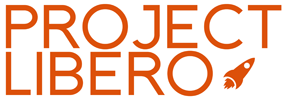Last week I read a great post by Sukh Pabial called “A leap of faith”. In it he talks about conflict and the importance of voicing a “third side” in order to allow warring parties to see another viewpoint. He also mentioned how hard that is in an organisational sense – not least because the HR / LD person sent to sort it out has potential loyalty to the company rather than to the needs of the protagonists.
When I learned to mediate I was part of a specialist group within the broader company, the theory being that we could be parachuted in to deal with any disputes – probably in parts of the business far removed from our day job. However, we had to spend quite a lot of time and effort making sure we weren’t seen as stooges for the exec board. There was a real credibility issue, especially in an organisation where the traditional route in conflict was to ballot for a strike. We may have been proponents of a 3rd side but that was often seen as the company’s way to sweep issues under the carpet and it’s fair to say that some staff figured mediation was just a meeting they had to sit through before they could raise a grievance!
These days I work alongside organisations, I don’t have my “managers hat” on when I carry out a mediation – I’m there for an equable solution, (fully accepting that there may not be one), rather than a corporate fix.
 I try to occupy a 4th position, truly meta, beyond the traditional observer role. With this approach I can stand outside of the company needs, the bosses requests, the politics of the organisation and it also makes it difficult for the parties to try to build an alliance with me.
I try to occupy a 4th position, truly meta, beyond the traditional observer role. With this approach I can stand outside of the company needs, the bosses requests, the politics of the organisation and it also makes it difficult for the parties to try to build an alliance with me.
So what is the 4th position? It’s a very personal thing but I’ll try to set out some broad principles…..
- It’s dissociated, often in a temporal sense. Not least because as a mediator we encourage the parties to discuss solutions in an imagined future, one that they create.
- It has real distance from their issues and their back story (I purposely limit the information I get from the HR department in advance).
- It views the parties within the context of their organisation, looking systemically, seeing what corporate culture has added to the dispute. (Is the company an invisible 3rd party in this conflict).
- It doesn’t have a preferred outcome for the parties. I’m there to point out what is happening, to help them examine their values & behaviour, their impact and what they need from the other party. I’m not there to give them a solution. There is no right and wrong here.
Let’s be clear, I’m not saying that an internal mediator can’t take a 4th position, I’m just suggesting some of the components that I consider go to make up this stance.
In conclusion, whether you talk about a 3rd side, a 4th position or something different – conflict is hard on everybody. Sukh closes his blog on a plea for empathy and I’d have to agree with him. Let’s talk more, and better.
